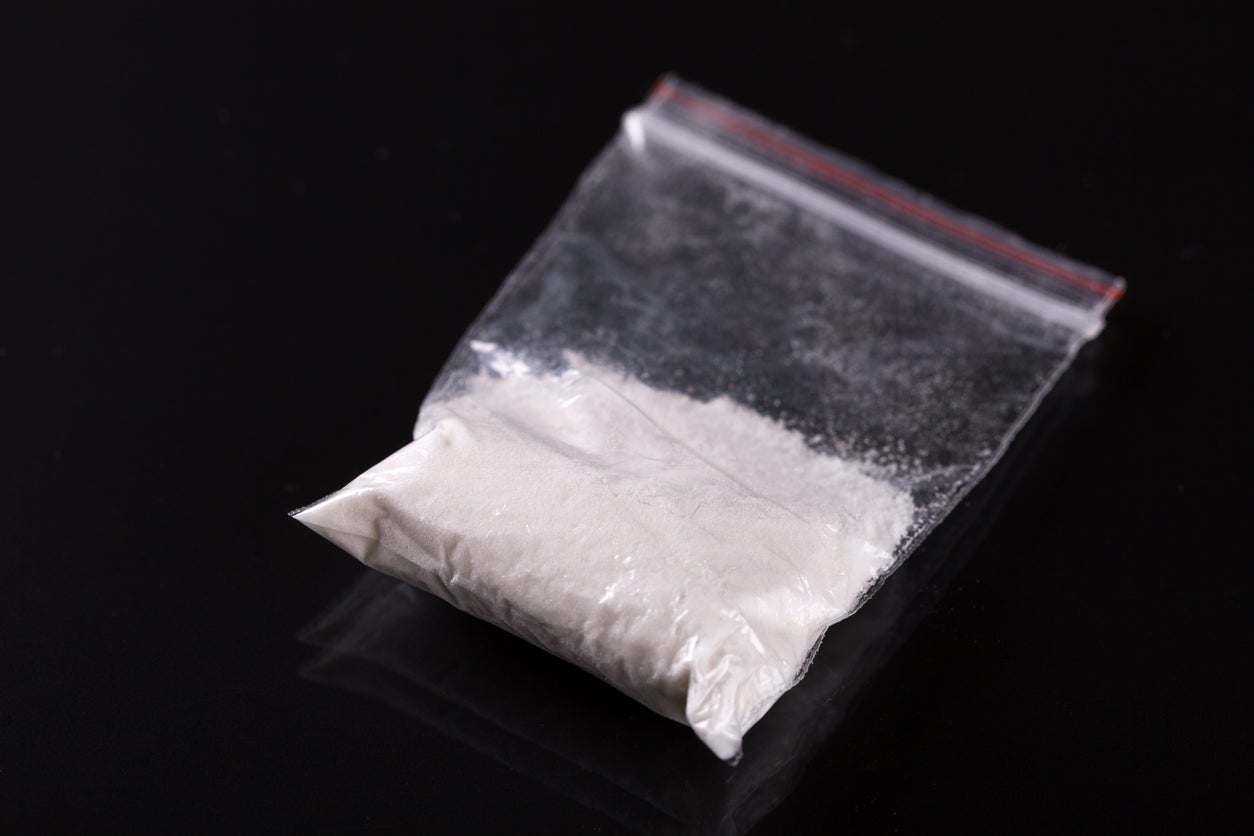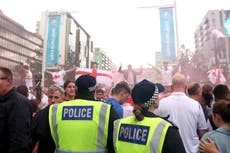Cocaine-fuelled football hooligans to be given five-year match ban, government announces
Police are increasingly finding class A drugs ‘at heart of disorder’ at games, minister says

Football fans caught with cocaine will be banned from attending matches for five years, under new government plans.
In changes expected be rolled out during the next football season, those convicted of supplying or being in possession of class A drugs could also be forced to surrender their passports when their team is playing abroad.
Warning of an “ugly violence” at some football games this season, which “has shocked all the leagues”, the goverment’s policing minister Kit Malthouse claimed that “more and more the police are finding class A drugs at the heart of that disorder”, adding: “We must act.”
The new punishments will be implemented by extending Football Banning Orders, which a court can currently only impose on those convicted of violence, disorder and racist or homophobic chanting and online hate offences.
Mr Malthouse, who is set to announce the plans later on Thursday, said banning orders had been “a game changer in rooting out racism and violence at football” which the government hopes will “do the same for drug-related disorder”.
The move, which has been welcomed by police and football officials, fits with the government’s avowed aim of cracking down on drug use, with home secretary Priti Patel is previously reported as wanting police forces to “make an example” out of wealthy, “high-profile” cocaine users in a bid to shift perceptions of recreational use.
Similar ideas have also appeared in the government’s 10-year drugs strategy, which in addition to pledging to break down “the stigma attached to addiction” also floated the possibility, “where relevant and proportionate”, of imposing curfews or temporarily seizing the passports or driving licences of repeat offenders caught using drugs recreationally.
In comments on Thursday, Boris Johnson claimed the habits of “middle class coke heads” are “feeding a war on our streets”. This contradicts some experts – including his own drugs tsar – who say it is largely the trade of crack cocaine and heroin that fuels rising street violence in Britain.
“Middle class coke heads should stop kidding themselves, their habit is feeding a war on our streets driving misery and crime across our country and beyond,” the prime minister said.
“That’s why we are stepping up our efforts to make sure those who break the law face the full consequences – because taking illegal drugs is never a victimless crime.”
The government said it hoped the new measures would prevent disorder such as that seen at the Euro Final between England and Italy last July, with Mr Malthouse adding: “The football family wants every ground to be a safe space for fans, especially children, and so do we.”
The National Police Chiefs’ Council’s (NPCC) football lead Mark Roberts said he was “pleased” that banning orders would be extended “to counter the growing issues of disorder we have seen, in part driven by the use of Class A drugs”.
“Policing and football authorities all support this measure and it is an important step in ensuring that the use of drugs at football is tackled so the majority of fans, particularly those with families, can enjoy themselves without suffering anti-social behaviour and violence,” Mr Roberts said.
The UK Football Policing Unit, which deals with all football banning orders, “will be coordinating activity with police forces and clubs from the start of next season to ensure that we make the best use of this legislation to target the use of drugs at football”, he added.
Join our commenting forum
Join thought-provoking conversations, follow other Independent readers and see their replies
Comments

Bookmark popover
Removed from bookmarks